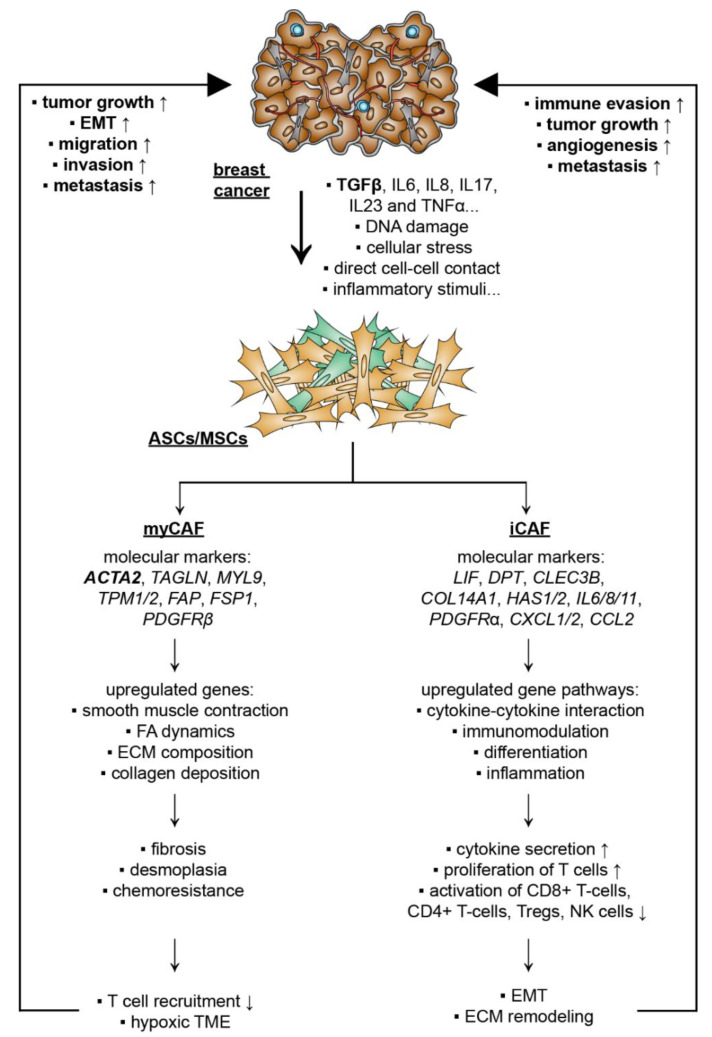Figure 3.
Simplified model showing that breast cancer cells induce de-differentiation of MSCs/ASCs into at least two distinct CAF subtypes. The de-differentiation process of MSCs/ASCs in the TME of breast cancer is triggered by multiple factors including cytokines TGFβ, IL6, IL8, IL17, IL23, and TNFα, DNA damage, cellular stress, direct cell–cell contact and inflammatory stimuli. This malignant transformation shifts ASCs/MSCs into several cancer-supportive populations including two typical phenotypes: myCAFs promoting tumor growth, EMT, migration, invasion, and metastasis, and iCAFs mediating immune evasion, tumor growth, angiogenesis, and metastasis. ASCs, adipose tissue-derived mesenchymal stromal/stem cells; MSCs, mesenchymal stromal/stem cells; TGFβ, transforming growth factor β; IL6, interleukin 6; EMT, epithelial-to-mesenchymal transition; TNFα, tumor necrosis factor α; ECM, extracellular matrix; TME, tumor microenvironment; CD8, cluster of differentiation 8; myCAF, myofibroblast cancer-associated fibroblast; iCAF, inflammatory cancer-associated fibroblast; ACTA2, smooth muscle actin, TAGLN, transgelin; MYL9, myosin light chain 9; TPM, tropomyosin; FAP, fibroblast activation protein; FSP1, fibroblast-specific protein-1; PDGFRβ, platelet-derived growth factor receptor beta; LIF, leukemia inhibitory factor; CXCL, chemokines C-X-C ligand; HAS, hyaluronan synthase; CCL, monocyte chemotactic and activating factor; COL14A1, collagen type XIV alpha 1 chain.

